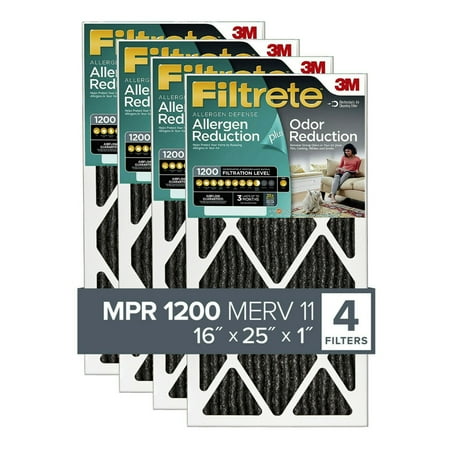

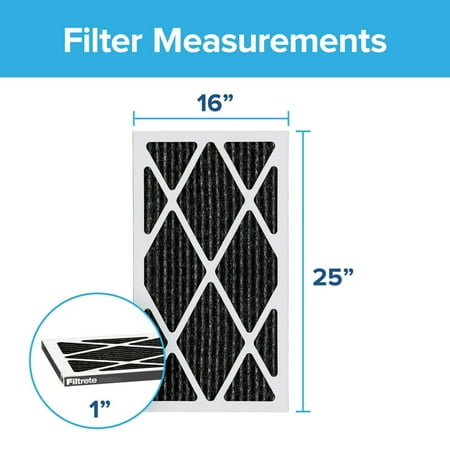


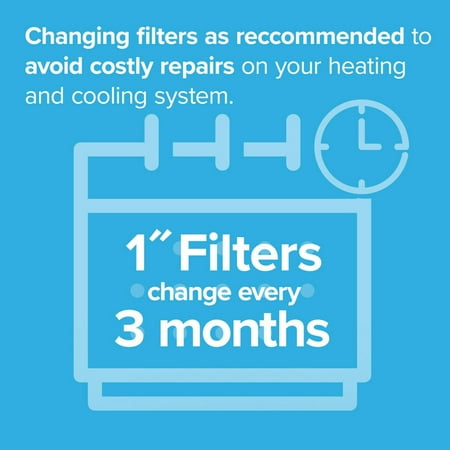
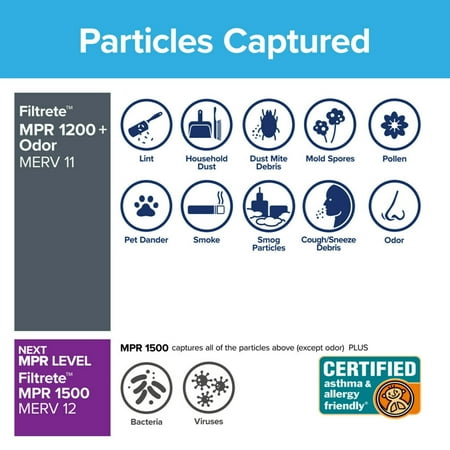
25 times more effective in odor removal than other national retail home air filters (based on a comparison of organic vapor capacity) for your furnace, air conditioner, or HVAC systemACTIVE CARBON LAYER acts as odor eliminator for pet smells, smoke, cooking, mildew and cleaning chemicalsOUTPERFORMS FIBERGLASS, WASHABLE AND NON-ELECTROSTATIC 3-month pleated 1 in. home air filters for your furnace, air conditioner or HVAC systemDESIGNED WITH EXCLUSIVE Filtrete™ Brand 3-in-1 technology from 3M to trap unwanted air particles while letting cleaner air flow throughATTRACTS AND CAPTURES particles such as lint, pollen, dust, pet dander, smoke and smog1200D MPR has a rating of MERV 11The higher the MPR, the more microparticles–such as pollen, pet dander, smoke, bacteria and viruses–your filter will capture from the air passing through itFOR OPTIMAL PERFORMANCE of your heating & cooling system or HVAC system, change your home air filter at least every 90 days for 1in. filters, and at least every 12 months for 4 in. and 5 in. filtersA dirty filter will slow down air flow and make the system work harder to keep you warm or cool–wasting energy. Sign-up for a filter change reminder program (www.filtrete.com/ChangeReminders) that works for you!FOR RESIDENTIAL use onlyCREATE A CHANGE COUNTDOWN in the Filtrete™ Smart app. Simply use the app to scan the barcode on your filter’s packaging, then choose 30, 60 or 90 days for your replacement countdown. When the lifespan is up, you’ll get a notification to change your filter
1200 (MCC) was a leap year starting on Saturday of the Julian calendar, the 1200th year of the Common Era (CE) and Anno Domini (AD) designations, the 200th year of the 2nd millennium, the 100th and last year of the 12th century, and the 1st year of the 1200s decade. As of the start of 1200, the Gregorian calendar was 7 days ahead of the Julian calendar, which was the dominant calendar of the time.
The Proleptic Gregorian calendar called it a century leap year.
4 (four) is a number, numeral and digit. It is the natural number following 3 and preceding 5. It is a square number, the smallest semiprime and composite number, and is considered unlucky in many East Asian cultures.
An allergen is an otherwise harmless substance that triggers an allergic reaction in sensitive individuals by stimulating an immune response.
In technical terms, an allergen is an antigen that is capable of stimulating a type-I hypersensitivity reaction in atopic individuals through immunoglobulin E (IgE) responses. Most humans mount significant Immunoglobulin E responses only as a defense against parasitic infections. However, some individuals may respond to many common environmental antigens. This hereditary predisposition is called atopy. In atopic individuals, non-parasitic antigens stimulate inappropriate IgE production, leading to type I hypersensitivity.
Sensitivities vary widely from one person (or from one animal) to another. A very broad range of substances can be allergens to sensitive individuals.
Filtration is a physical process that separates solid matter and fluid from a mixture.
Filter, filtering, filters or filtration may also refer to:
An odor (American English) or odour (Commonwealth English; see spelling differences) is a smell or a scent caused by one or more volatilized chemical compounds generally found in low concentrations that humans and many animals can perceive via their olfactory system. While smell can refer to pleasant and unpleasant odors, the terms scent, aroma, and fragrance are usually reserved for pleasant-smelling odors and are frequently used in the food and cosmetic industry to describe floral scents or to refer to perfumes.


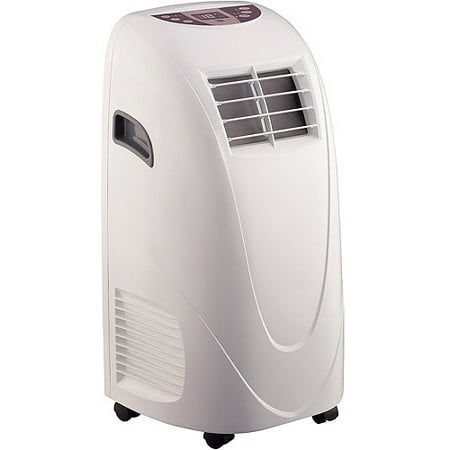

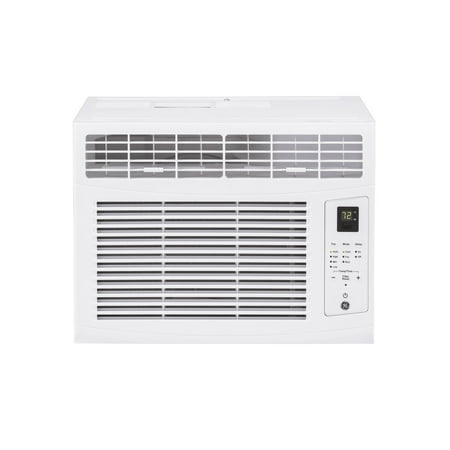
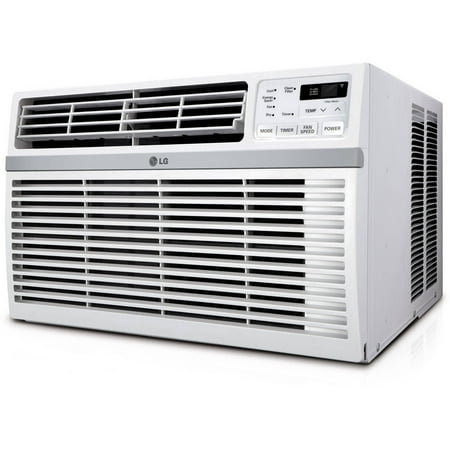






Reviews
There are no reviews yet.